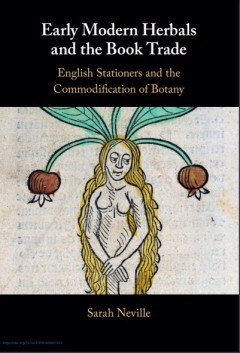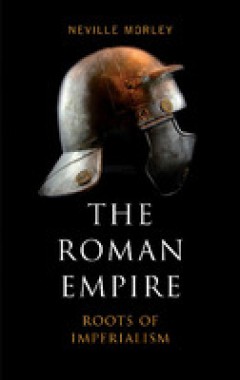Filter by

Early modern herbals and the book trade : English stationers and the commodif…
Between 1525 and 1640, a remarkable phenomenon occurred in the world of print: England saw the production of more than two dozen editions identified by their imprints or by contemporaries as 'herbals'. Sarah Neville explains how this genre grew from a series of tiny anonymous octavos to authoritative folio tomes with thousands of woodcuts, and how these curious works quickly became valuable com…
- Edition
- 8
- ISBN/ISSN
- 9781009031615
- Collation
- xvi; 290p; ill.
- Series Title
- -
- Call Number
- 615.3210942 EAR S

The Roman Empire; Roots Of Imperialism
A millennium and a half after the end of the period of its unquestioned dominance, Rome remains a significant presence in western culture. This book explores what the empire meant to its subjects. The idea of Rome has long outlived the physical empire that gave it form, and now holds sway over vastly more people and a far greater geographical area than the Romans ever ruled. It continues to sha…
- Edition
- -
- ISBN/ISSN
- 9781849645478
- Collation
- Knowledge Unlatched (KU)
- Series Title
- -
- Call Number
- -

A background to primary school science
The Australian Academy of Science has had a long standing interest in the provision of science education to Australian school students. Recognising that skills and attitudes in science are acquired at an early age, the Academy in 1994 launched a major program in science education at primary school level under the title Primary Investigations. Since science teachers at primary and lower secondar…
- Edition
- -
- ISBN/ISSN
- 9781921934056
- Collation
- viii, 181p. : ill.
- Series Title
- -
- Call Number
- 371.33 FLE b
 Computer Science, Information & General Works
Computer Science, Information & General Works  Philosophy & Psychology
Philosophy & Psychology  Religion
Religion  Social Sciences
Social Sciences  Language
Language  Pure Science
Pure Science  Applied Sciences
Applied Sciences  Art & Recreation
Art & Recreation  Literature
Literature  History & Geography
History & Geography